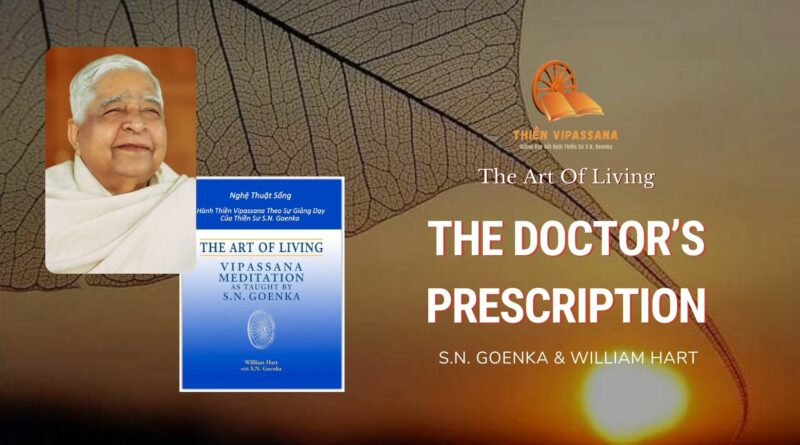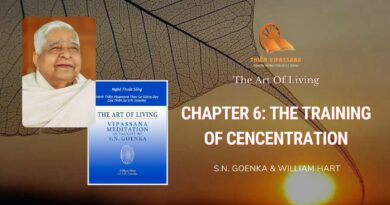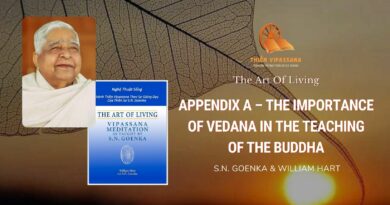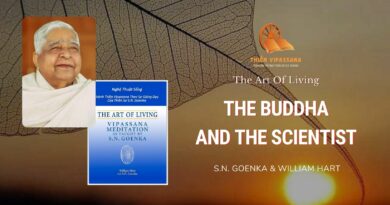The Doctor’s Prescription
A man becomes sick and goes to the doctor for help. The doctor examines him and then writes out a prescription for some medicine. The man has great faith in his doctor. He returns home and in his prayer room he puts a beautiful picture or statue of the doctor. Then he sits down and pays respects to that picture or statue: he bows down three times, and offers flowers and incense. And then he takes out the prescription that the doctor wrote for him, and very solemnly he recites it: “Two pills in the morning! Two pills in the afternoon! Two pills in the evening!” All day, all life long he keeps reciting the prescription because he has great faith in the doctor, but still the prescription does not help him.
The man decides that he wants to know more about this prescription, and so he runs to the doctor and asks him, “Why did you prescribe this medicine? How will it help me?” Being an intelligent person, the doctor explains, “Well, look, this is your disease, and this is the root cause of your disease. If you take the medicine I have prescribed, it will eradicate the cause of your disease. When the cause is eradicated, the disease will automatically disappear.” The man thinks, “Ah, wonderful! My doctor is so intelligent! His prescriptions are so helpful!” And he goes home and starts fighting with his neighbors and acquaintances, insisting, “My doctor is the best doctor! All other doctors are useless!” But what does he gain by such arguments? All his life he may continue fighting, but still this does not help him at all. If he takes the medicine, only then will the man be relieved of his misery, his disease. Only then will the medicine help him.
Every liberated person is like a physician. Out of compassion, he gives a prescription advising people how to free themselves of suffering. If people develop blind faith in that person, they turn the prescription into a scripture and start fighting with other sects, claiming that the teaching of the founder of their religion is superior. But no one cares to practise the teaching, to take the medicine prescribed in order to eliminate the malady.
Having faith in the doctor is useful if it encourages the patient to follow his advice. Understanding how the medicine works is beneficial if it encourages one to take the medicine. But without actually taking the medicine, one cannot be cured of the disease. You have to take the medicine yourself.
Bài viết này được trích từ cuốn sách The Art Of Living – Thiền Sư S.N.Goenka và William Hart.









